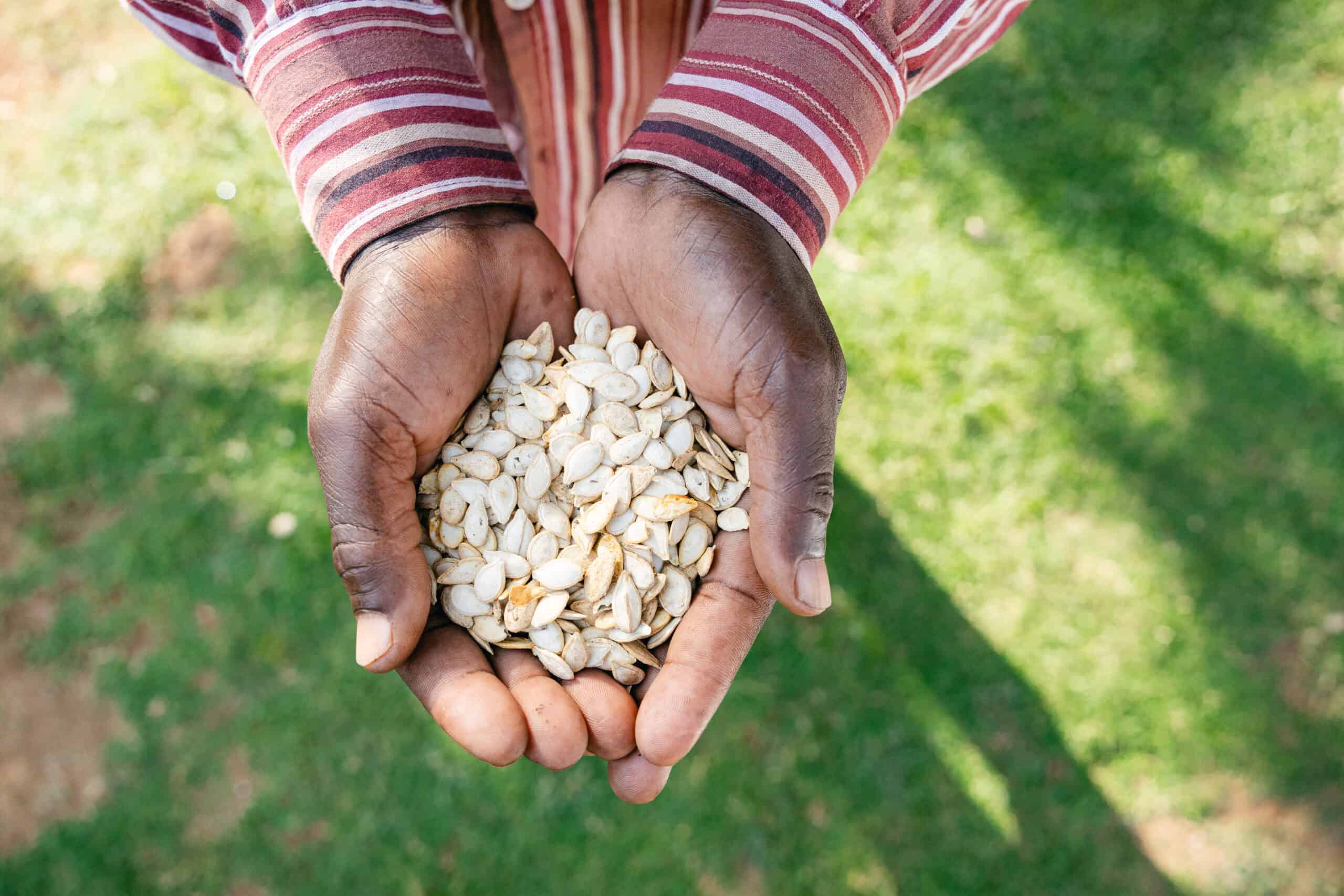Much like financial institutions safeguard our money and assets, seed banks play a vital role in preserving biodiversity, ensuring access to high-quality seeds, and supporting long-term sustainability for organizations like Trees for the Future (TREES). With an estimated 40% of plant species globally at risk of extinction (Kew, 2023), securing diverse and resilient seeds has never been more urgent. Community-based seed banks offer a sustainable solution—providing farmers with a reliable source of seeds throughout the planting season and, in many cases, a new stream of income.
Why Seed Banks Matter
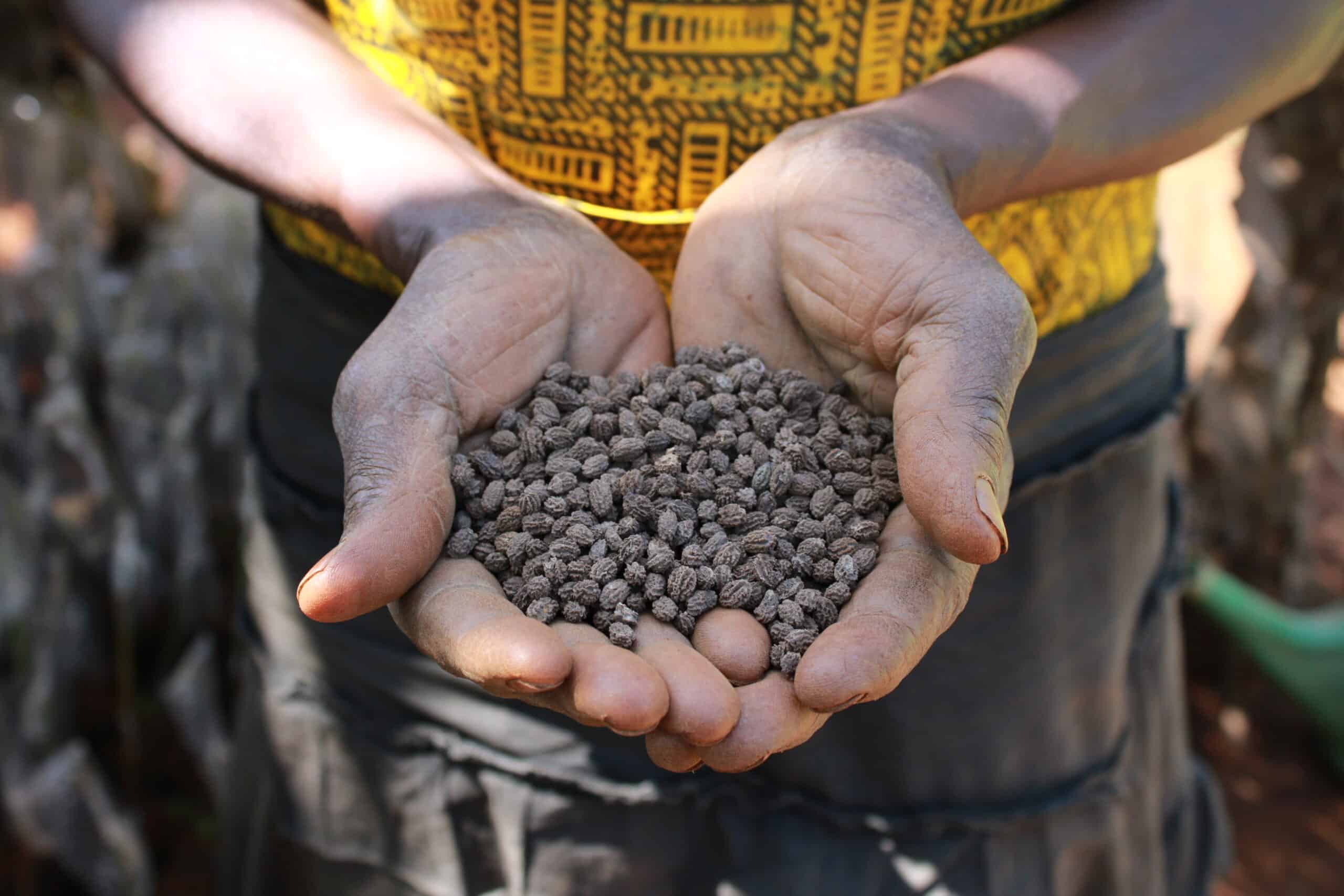
A well-maintained supply of seeds—carefully collected, tested, and stored in a facility known as a seed bank—supports farmers’ efforts in landscape restoration, climate resilience, and sustainable agriculture. A seed bank is a centralized storage facility where seeds are processed and preserved under ideal conditions to ensure their quality and viability for future planting. TREES is establishing community-based seed banks in all five countries where we work. These banks are vital to our mission to restore land and equip farmers with the training and tools they need, including high-quality seeds that thrive in local conditions.
“The biggest challenge we encountered before launching our seed bank was finding the right seeds in the right quantities, at the right time,” explains Robert McAyoo, TREES Homa Bay Seed Bank Manager in Kenya. “Demand often exceeded supply, and sourcing specific species—especially tree seeds—was incredibly difficult. Since launching the TREES Seed Bank, our farmers can now access high-quality seeds whenever they need them.”
Recognizing these persistent challenges, TREES launched our first community-based seed bank in September 2022, based in Homa Bay, Kenya. The bank sources, consolidates, quality-checks, germination-tests, and stores seeds under optimal conditions for later distribution to Forest Garden farmers.
Inside TREES’ Community-Based Seed Bank
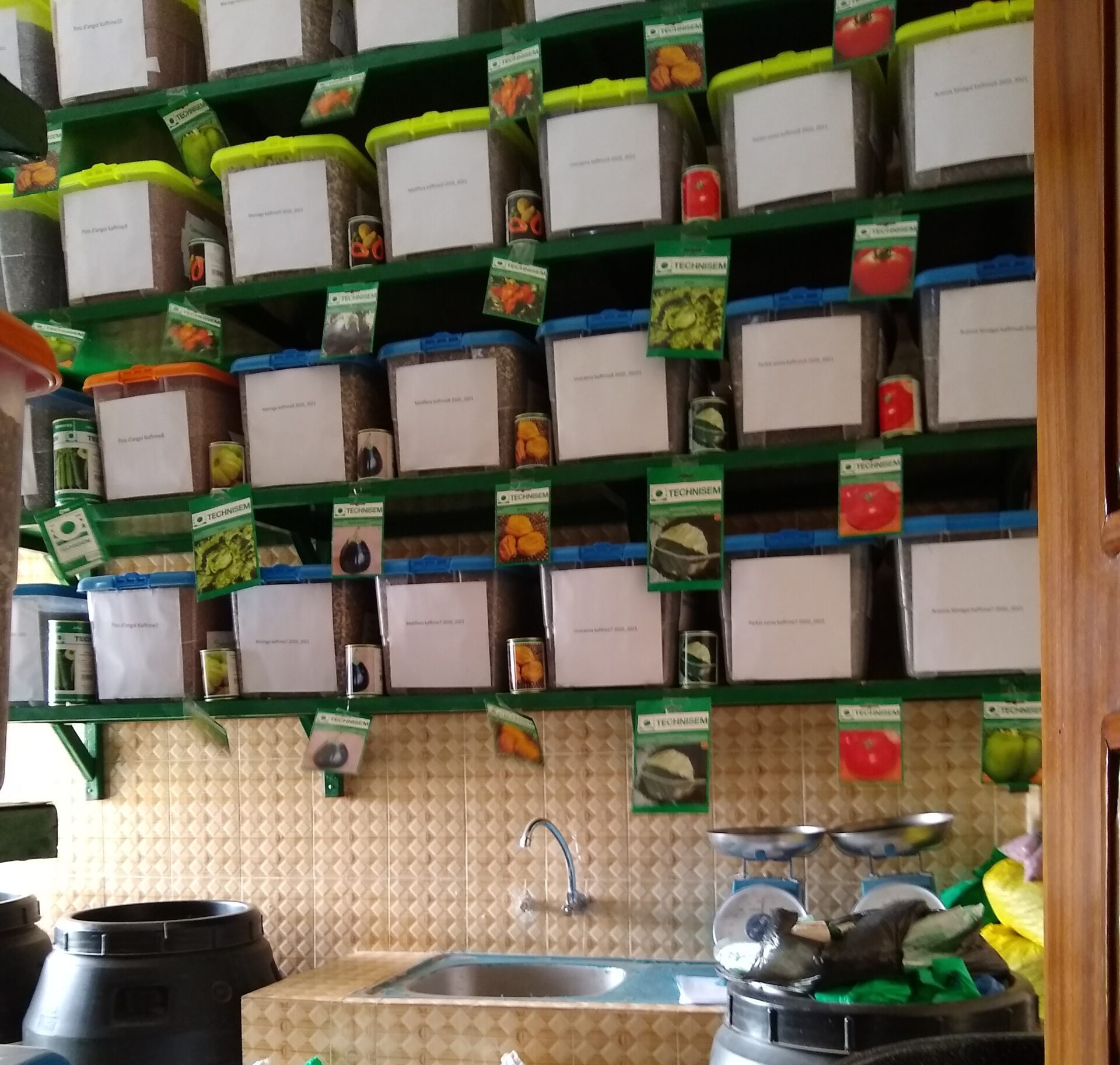
Stationed within the TREES Homa Bay office, this first seed bank operates with a dedicated team of 15 staff members—primarily women—who sort, clean, dry, weigh, package, and code both tree and vegetable seeds. These activities ensure seeds are available, accessible, and viable at the start of every planting season.
“Our seed bank team bring patience, commitment, and attention to detail to their work. Their dedication ensures that every seed we distribute meets the highest quality standards,” Robert explains.
The seed bank is managed like any fast-moving commodity supply chain, with the team closely monitoring usage and maintaining stock levels to ensure supply keeps pace with growing demand. Since its launch, the seed bank has distributed over 10 tons of native tree species to Forest Garden farmers across the Lake Victoria region.
Among the ten most popular tree species, Acacia polyacantha stands out as the most in demand. Farmers rely on this fast-growing species to act as a protective barrier around their Forest Gardens—safeguarding against animal intrusion and marking farm boundaries.
How the TREES Seed Bank Works
To ensure the quality and integrity of every seed that passes through the facility, the TREES Seed Bank follows eight Standard Operating Procedures (SOPs):
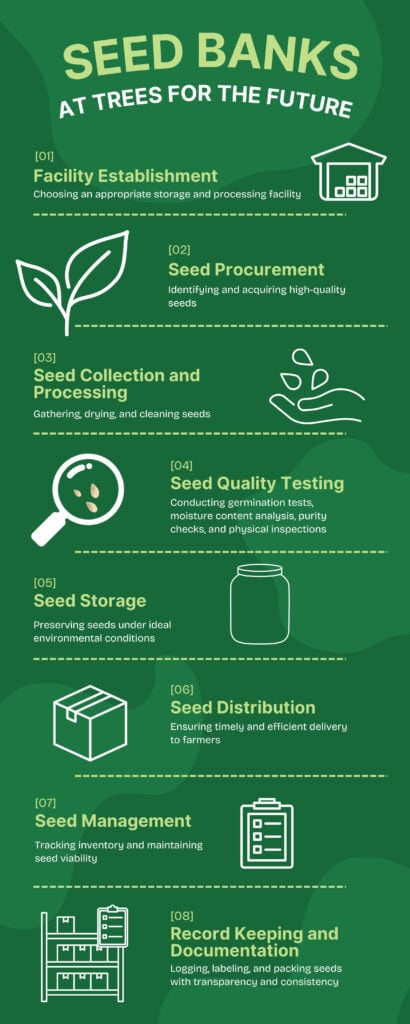
These protocols create a foundation which guarantees that farmers receive viable, high-quality seeds that contribute to thriving Forest Gardens and resilient ecosystems.
Enabling Farmers as Seed Vendors
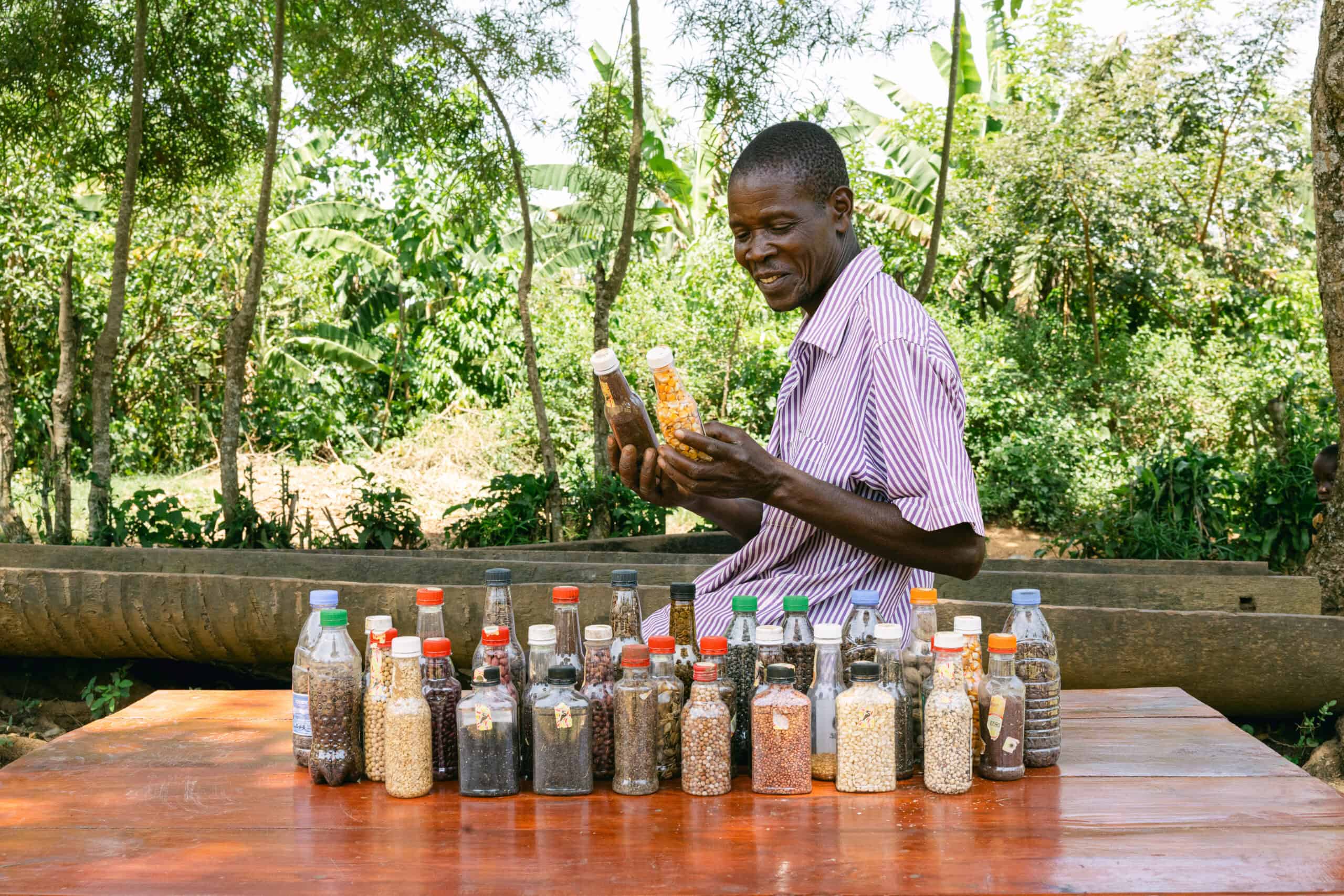
In addition to distributing seeds, TREES engages farmers to become certified seed vendors—turning seed collection into a profitable business opportunity alongside their ongoing permagarden farm businesses. Through this initiative, farmers receive training on seed harvesting, cleaning, drying, storage, and quality testing—particularly germination rate testing. Once trained and vetted, they are certified to sell seeds to the TREES Seed Bank and within their own communities.
“Currently, we have 28 certified seed vendors—nine women and nineteen men—who supply the seed bank with much-needed seeds,” says Robert. “For many, this additional income has been life-changing. They’ve been able to pay school fees, improve their homes, and even launch new businesses.”
In 2024 alone, participating farmers earned a total of 2.8 million Kenyan Shillings (KES) (approximately $21,743 USD) by selling seeds to the organization. The highest individual payout reached KES 326,400 (about $2,535 USD), highlighting the strong income potential of the seed vending model. In some cases, farmers buy seeds from neighbors who aren’t interested in participating themselves or hire them to help sort and prepare seeds—circulating even more income within the community.
Locally Led, Locally Informed
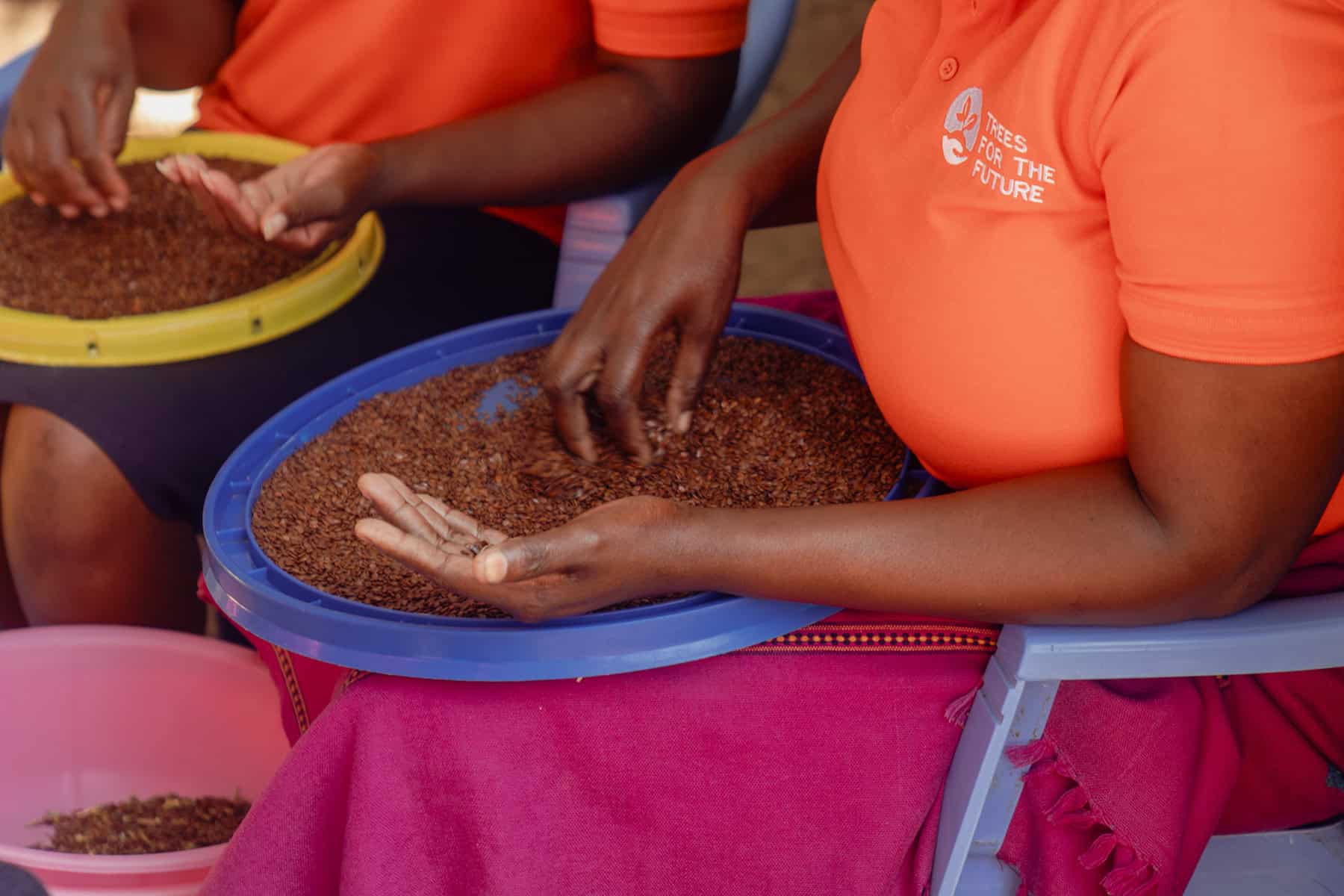
By involving community members in the seed collection and management process, TREES ensures the seed bank reflects the needs and preferences of the people it serves. Farmers understand which species thrive in their regions, and their participation increases the bank’s relevance, effectiveness, and sustainability.
“Our motto at the seed bank is simple,” Robert shares. “Quality seeds produce healthy trees, which restore soil, build carbon sinks, and serve as the foundation for thriving farms that feed and bring in income. That’s the impact we’re working toward every day.”
A Future of Sustainable Seed Banking
TREES’ community-based seed banks are more than just storage facilities—they are hubs of innovation, sustainability, and empowerment. Much like financial institutions safeguard assets for future growth, these seed banks protect biodiversity and secure the agricultural foundation for generations to come. By ensuring seed availability, access, and community participation, they strengthen local food systems and environmental resilience—yielding long-term returns in the form of restored landscapes, improved livelihoods, and a future farmers can count on.
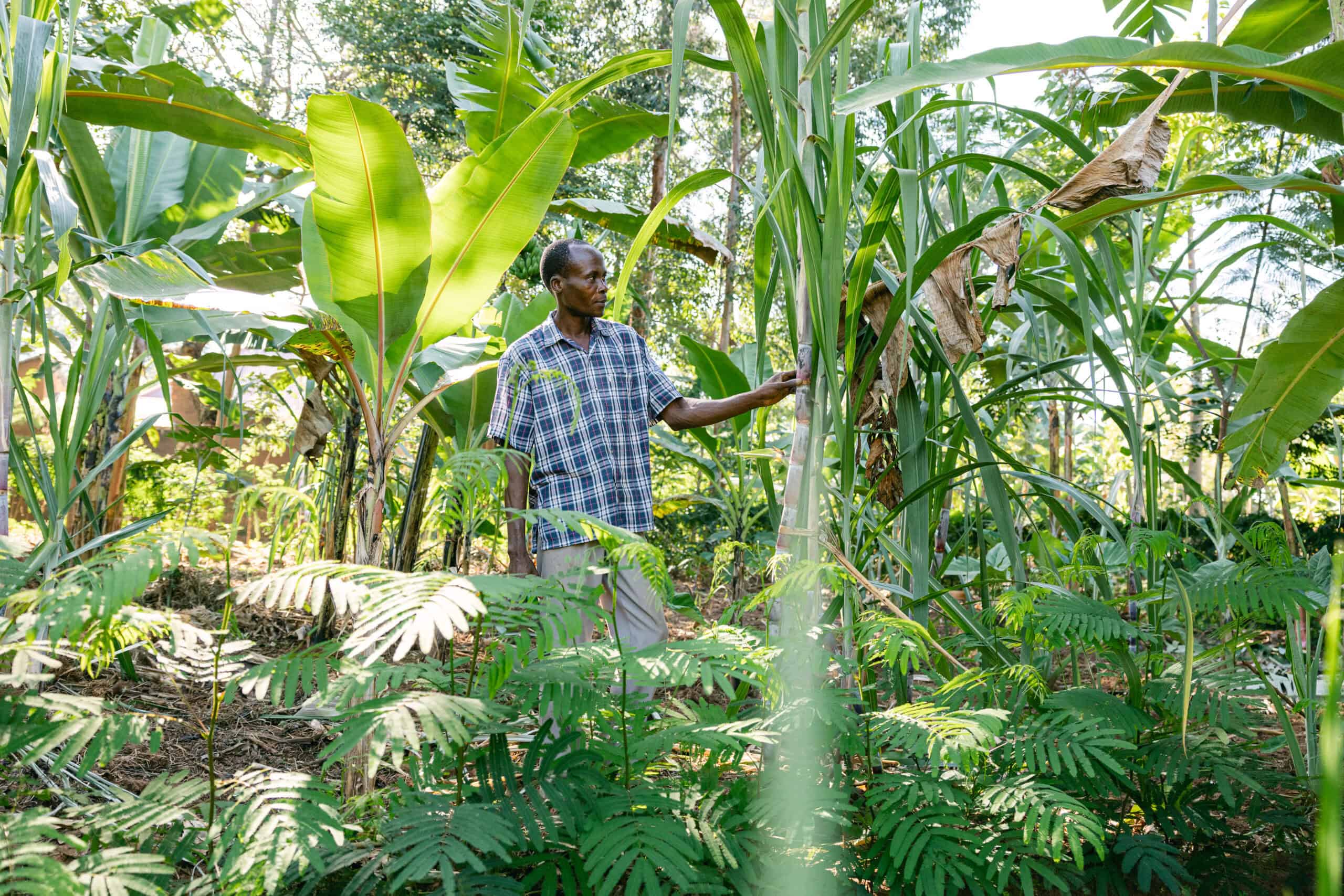
Join Us in Securing the Future
Access to high-quality seeds is not just a farmer issue—it’s a matter of global food security and ecological balance. Here’s how you can help:
🌱 Support community-based seed banks by donating to TREES.
🌱 Share this story to raise awareness about the importance of biodiversity and sustainable agriculture.
